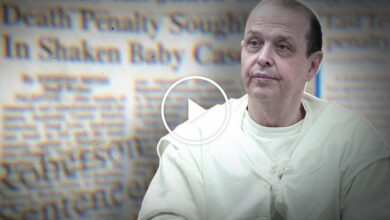
Kelly Sloan
It’s one of those little historical ironies Great Britain is holding a national election on the Fourth of July. The mood in the United Kingdom seems a bit bleakly apprehensive, more so than usual, as Sir Keir Starmer’s Labour Party seems poised to form the next government, with the opposition split between an ineffectual Conservative Party and an insurgent Reform Party. Few in Britain seem particularly happy with their options (sound familiar?) but they take a degree of solace in looking over the Atlantic, especially after that carnival of embarrassment some have dubbed a “presidential debate.” One commentator from the Telegraph quipped “the U.S. faces a stark choice for President between one who is facing a sentence and one who can barely finish one.”
The bar was set so low for that “debate” one nearly manages to be surprised it was still too high. About the only substantive topic they actually debated was their relative golf handicaps. President Joe Biden’s frailties were fully displayed for all to see, including other world leaders. It was not America’s best moment.
Since then, the Biden team has been on what can best be professionally described as “panic mode.” Any distraction from that performance is something for the campaign to embrace. That partially explains the extravagant over-reaction to a series of Supreme Court decisions this week.
Stay up to speed: Sign up for daily opinion in your inbox Monday-Friday
Listening to the Biden campaign and others on the left, you would think the courtruled to overturn the Bill of Rights, the Magna Carta all Ten Commandments and the singing of “Happy Birthday” with their decisions on presidential immunity and the administrative state. In reality, all they did was confirm America is governed by a system of checks and balances, delineated rather clearly in the Constitution, and that system will prevail regardless of which aging, incompetent nincompoop with a tenuous relationship with reality and the truth wins the presidency next November.
Concerning the immunity case, Trump v. United States, Justice Sonia Sotomayor had this to say: “Orders the Navy’s Seal Team 6 to assassinate a political rival? Immune. Organizes a military coup to hold onto power? Immune. Takes a bribe in exchange for a pardon? Immune. Immune, immune, immune.” If there was a competition to come up with the most hyperbolic non sequitur, that would have to win it. “Even if these nightmare scenarios never play out, and I pray they never do, the damage has been done,” Justice Sotomayor continued. “In every use of official power, the President is now a king above the law.” Oh my.
The best we can take from this is that Supreme Court justices ought not write dissents while falling asleep to a B-grade dystopian movie on Netflix. The decision does no such thing. As Chief Justice John Roberts reiterated, the president is not above the law, and this does not change that. First off, it was not a get-out-of-jail-free card for Trump — the majority rejected his insane defense of blanket immunity, and dutifully cast it aside. What it did was clarify the framers vision — that there is to be a clear separation of powers, and that the executive must be afforded a degree of freedom to act. The president, whoever he or she is, cannot allow fear of legal quandary to interfere with his or her duties. The clearest example I’ve seen is then-President Barack Obama’s decision to eliminate via drone-fired missile the terrorist Anwar al-Awlaki, who happened to be a U.S. citizen, a decision I happen to agree with, but which others, like the ever-patriotic ACLU do not. As Justice Roberts wrote “A President inclined to take one course of action based on the public interest may instead opt for another, apprehensive that criminal penalties may befall him upon his departure from office… And if a former President’s official acts are routinely subjected to scrutiny in criminal prosecutions, ‘the independence of the Executive Branch’ may be significantly undermined.” Just so. And no, that does not allow a president to shoot someone on Pennsylvania Avenue, or sic the SEALs on their opponent.
It is also valuable to point out this decision applies to the presidency — not to Donald Trump. Democrats who are upset by this decision should reflect it also means any future Trump administration could not prosecute Biden for things he did as president, as Trump has threatened to — the law applies to all.
It’s a little ironic liberals are simultaneously caterwauling about other decisions by the court which limit the power of the executive which they are suddenly so worried about. In both the decisions overturning the Chevron doctrine, and in SEC v. Jarkesy that reaffirms the due process applies to executive agencies, the court re-established the Constitution sets boundaries between the branches. Sotomayor, again, inadvertently offered a compelling civics lesson in her dissent on Jaresky: “For those and countless other agencies, all the majority can say is tough luck; get a new statute from Congress.”
Yes. Yes, that’s exactly what the Constitution says, and how laws are made in this country.
Yes, the coming presidential election is bleak. But we can take solace this Fourth of July in the fact the country vouchsafed us by the framers is more than the president — much, much more. Thank God.
Kelly Sloan is a political and public affairs consultant and a recovering journalist based in Denver.
Read More


